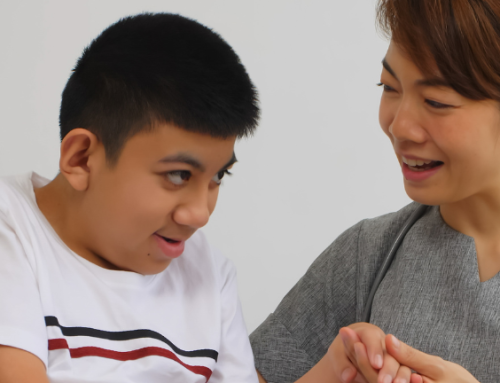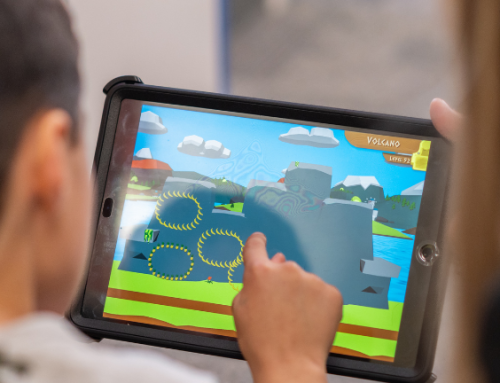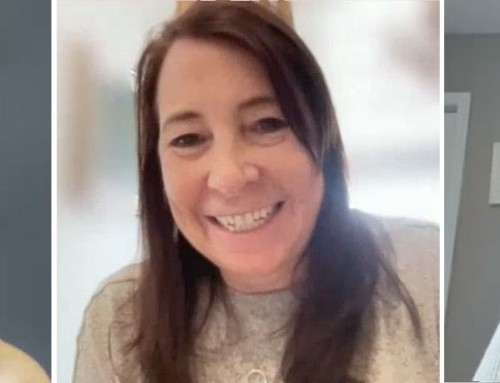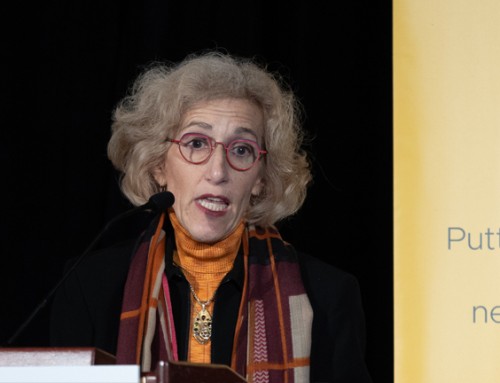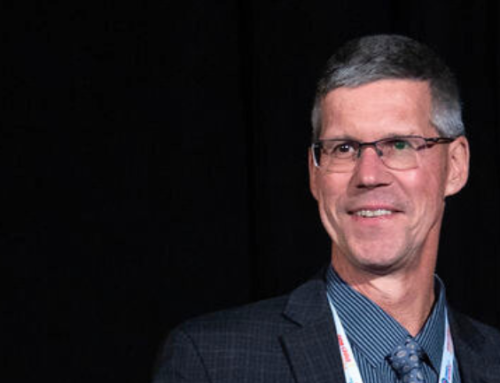Eight-year-old Oscar loves to play—whether it’s hiking, skating, or building Lego, he’s always on the move, flexing his imagination and taking any opportunity he can to be creative.
But it’s these same wonderful qualities that posed a challenge for Oscar at a young age. When he started daycare, rather than focusing on one activity like sitting during circle time or colouring, he wanted to do multiple activities at once and struggled to adapt to a school environment.
At the age of five, just before entering kindergarten, he was diagnosed with attention deficit hyperactivity disorder (ADHD).
 |
The diagnosis was not a surprise to us, it was more a confirmation and way for us to access more resources,” says Oscar’s mother Marie-Claude. “Grade one was a bit bumpy for Oscar and I knew there would be more expectations from him as he got older, so in the summer of 2023 I was searching for additional tools and activities to support him, and that’s when I discovered Dino Island.” |
Dino Island is an innovative game-based intervention program designed for children with brain-based differences that can lead to challenges with attention, memory, adaptability, and self-control. This engaging tablet-based program utilizes five dinosaur-themed games that are aimed at improving specific brain abilities, including impulse control, attention, memory, flexible thinking, and problem-solving.
As children advance through Dino Island levels, they encounter new environments and more complex tasks, providing opportunities to learn, practice, and master new skills, especially those that can be applied into their daily lives. To keep children motivated, Dino Island reinforces training/gameplay with ‘tokens’ that are used for extra in-game achievements, such as personalizing their game character and unlocking additional content.
The Dino Island program also provides a supportive framework for parents or other adult ‘coaches’ (educators, support workers, clinicians), offering hands-on training, tools, and guidance to become effective learning partners for the children. This includes online training to help master and customize the program’s content and potential uses. The ‘hybrid’ therapeutic approach of Dino Island ensures that it fits the unique needs and learning pace of each child and integrates well within the family/school/system contexts.
Dino Island’s approach is uniquely collaborative, actively involving both the child and their caregiver/coach, with training sessions designed for mutual learning and practice in a shared, engaging, and growth-oriented experience. The ultimate goal of the program is to create positive, enduring changes that will enhance the daily life experiences and functioning of neurodiverse children and their families, as well as to provide lasting benefits for the wider communities.
 |
Traditionally, these types of approaches have been very difficult or costly for families to access, so our focus on developing Dino Island has been to create something that’s effective, but also accessible and affordable,” says Dr. Sarah Macoun, Associate Professor in Clinical Neuropsychology at the University of Victoria and the lead researcher on the project. |
Dr. Macoun was introduced to an early iteration of Dino Island as a graduate student while working with Dr. Kimberly Kerns and Dr. Catherine Mateer, two of the original co-creators of the program. The intervention program became a primary focus of her research in 2012, with ongoing support from Kids Brain Health Network. Initial versions of the intervention were created as a therapist-delivered rehabilitation tool for adults with brain injuries and were eventually adapted into a game-based program for children.
Most recently, Dr. Macoun and her Ph.D. student-KBHN trainee, John Sheehan, created, piloted, and completed clinical trials for the telehealth group-based Dino Island Parent-Child Cognitive and Communication Training Program. As part of this development, the research team regularly worked with KBHN Family-Engaged Research Partners, including neurodiverse children and parents with diverse lived experiences, to help identify ways to expand the accessibility and usefulness of the Dino Island program to even more children and families.
Because the Dino Island intervention is designed to be delivered by non-experts, it can be adapted for use across more diverse settings, including in schools, hospitals, and community agencies. The research team is currently working with groups in Africa and throughout North America to determine if the game is effective for children with cerebral malaria, brain cancer, and other concerns.
“The game is certainly one component, but the second component is active engagement by the adult in the child’s circle of care which is equally as important,” says Dr. Macoun. “The adult is there to help the child with managing emotions such as frustration and applying problem-solving strategies to improve their performance. We need to have this combination of the video game and the care giver support to really see changes in the brain that will manifest into the child’s day-to-day life.”
For Oscar, Dino Island strengthened his skills in attention, memory, and knowing when he needs to take a break to calm down. Sometimes this may mean doing jumping jacks in the living room to let out some energy, or repeating 3-4 things out loud that he needs to remember to retrieve from his room, or recognizing when he needs to take time for a deep breathing exercise to calm his brain and body. Having the opportunity to learn, practice, and test out new skills and habits during Dino Island training sessions can mean the difference when it comes to translating practice into real-world change.
Since the initial iterations, the Dino Island intervention program has supported over one thousand children like Oscar across the country—including children like Theo.
Born in Brazil, Theo was diagnosed with ADHD and oppositional defiant disorder (ODD) when he was nine years old. When he moved to Canada with his family in 2023, he struggled with communication and often felt frustrated at school. Shortly after, his family discovered Dino Island through an online search.
“I noticed that Theo could translate what he was learning in the game to real life,” says his stepfather, Afonso. “He was having a hard time with one of the Dino Island games and eventually figured it out. He associated the challenge he was having completing the game with a problem he was having at school, and he became eager to overcome the challenge just like he had in the game.”
Since starting Dino Island, Theo’s communication has greatly improved and, with the help of his new skills and tools to help him conquer challenging goals, he is now fluent in English. Afonso says that participating in the Dino Island program has also made him a better parent by helping him address the challenges Theo faces and giving him the tools to better understand how to make things easier for his son.
“We’re seeing a lot of additional benefits from Dino Island in terms of academic skills, confidence gains, and how parents and children communicate with each other,” says Dr. Macoun. “So, while Dino Island is helping with brain function, we’re also seeing many of these broader benefits which is very exciting.”
Read full details about the KBHN supported intervention, Dino Island project



